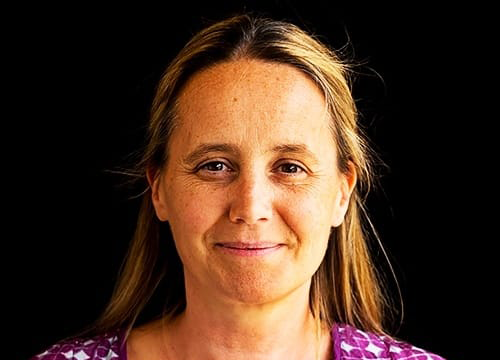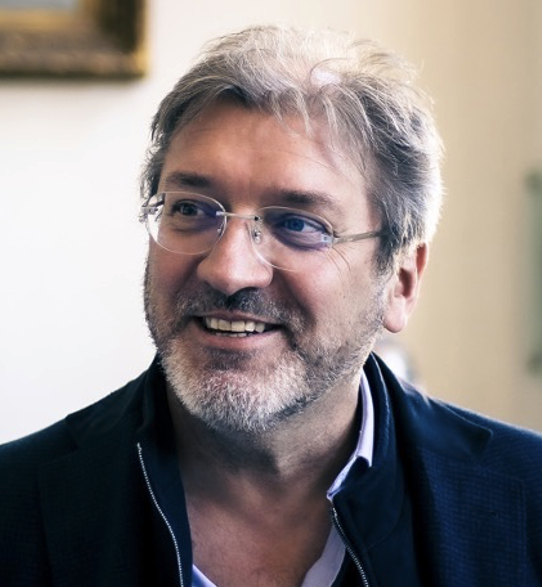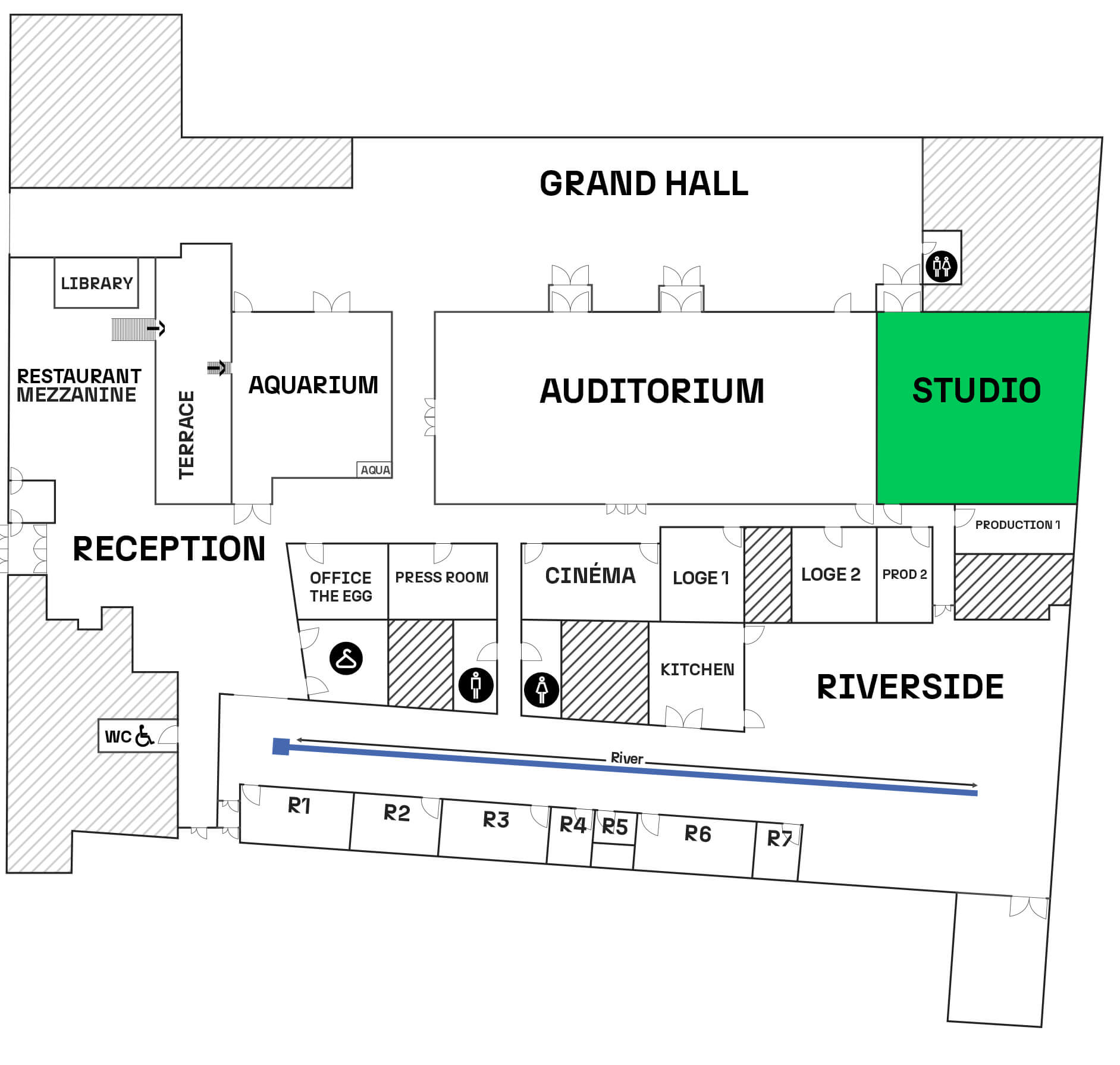Parallel session: Joint AccelNet – EBRAINS session - Advancing Data Standards, Models and Neurotechnology for Arts-in-Medicine
Works of art don’t just entertain, heal or console; they can also promote health, learning, and the development of more humane technologies. Moreover, advances in AI, brain-computer interfacing, and brain modeling enable the study of mechanisms by which the arts have an impact on brain activity and brain health. The panel will discuss challenges and clinical opportunities in advancing data standards, models and neurotechnology for advancing and personalizing arts-in-medicine and promote brain health.
Chairs:
Viktor Jirsa, EBRAINS, Chief Scientific Officer
Jose L Contreras-Vidal, NSF IUCRC BRAIN and AccelNet Director
Introduction to the Joint Session: Goals and Objectives (10 min)
Panelists (5 min each):
Manuela Filippa (Swiss Center for Affective Sciences, U of Geneva):Standards for acquisition pipeline to support the development of sound andmovement (SoMo) dataset of temporal creative practices.
Francesco Pavone (U of Florence): Multimodal, multiscale datasets for digitaltwins in culturally based, health-oriented policies
Laura Cabrera (Pennsylvania State University): Ethical Dimensions of MobileBrain-Body Imaging (MoBI) Research
Philippe Vernier (University of Paris-Saclay) : Data Governance AcrossBorders
Q&A (15 minutes)

Who You’ll Be Hearing From
This session brings together expert voices from across the EBRAINS community and beyond. Discover the people sharing their insights, research, and perspectives on the topic.


Pavone is author of about 270 international papers and editor of international books. He has about 150 invited talks and he is editor of several international journals. He is unit coordinator of International, European and national projects and obtained an Advanced Grant of the European Research Council (ERC BrainBIT, 2016-2021), an associated ERC Proof-Of-Concept (POC), and a NIH grant in the framework of the Brain Initiative (NIH BICCN U01MH117023, 2018-2023). He is the Italian node leader of the infrastructure EBRAINS and the Italian delegate in the Board of Directors of the infrastructure EurobioImaging. He has organised several international congresses. He is in the evaluation panel of the European Research Council (PE3) and the DFG (Germany), fellow of SPIE, AIMBE and OSA. He has been awarded with the Fermi Prize in 2024. Finally, Pavone is founder of companies Light4tech (ww.l4t.it) in 2005 and Emoled (www.emoled.com) in 2016, NSight Dynamics srl in 2025 and author of several patents.


Dr. Cabrera is the Dorothy Foehr Huck and J. Lloyd Huck Chair in Neuroethics. She is an Associate Professor of Engineering Science and Mechanics, and Philosophy at Penn State University. She is Senior Research Associate at the Rock Ethics Institute, and affiliated with the Center for Neural Engineering. Dr. Cabrera is chair of the P7700 -Recommended Practice for the Responsible Design and Development of Neurotechnologies - Standard Development Group, past chair of the IEEE Brain Neuroethics Subcommittee, and member of the International Neuroethics Society (INS) Board of Directors. She is a Senior IEEE Member. Dr. Cabrera's interests focus on the ethical, societal and cultural implications of the design, development and use of neurotechnologies and other disruptive technologies.


Manuela Filippa, PhD, is a researcher and lecturer at the University of Geneva. She explores how music, emotions, and synchrony shape human development and connection, from neonatal care to learning contexts. Her award-winning research on music and preterm infants has gained international recognition and visibility, including in National Geographic. Through her teaching, research, and outreach, she bridges music, science, and care, showing how musicality and emotional attunement can foster connection and resilience across the lifespan.


Distinguished Professor at the University of Houston and Director of the NSF BRAIN Center, Fellow of IEEE and AIMBE for pioneering work in brain-machine interfaces and art-evoked brain activity. He leads research at the intersection of art, science, and neurotechnology, developing personalized arts prescriptions for health. His work has been featured at the Smithsonian, Menil Collection, MARCO Museum (Monterrey, MX), UN AI for Good Summit, Mapping Science and The Economist.


Viktor Jirsa is Chief Science Officer at the EBRAINS AISBL. He studied Theoretical Physics and Philosophy in Stuttgart, Germany, and is Director of Research at Centre National de la Recherche Scientifique (CNRS) and Director of the Inserm Institut de Neurosciences des Systèmes (INS) at Aix-Marseille University. Since the late 90s, Viktor Jirsa has made pioneering contributions to the understanding of how network structure constrains the emergence of functional dynamics using methods from nonlinear dynamic system theory and computational neuroscience. His work laid the theoretical basis for connectome-based brain modeling. During the Human Brain Project, he led the efforts in personalized brain modeling in epilepsy, ultimately contributing to the digital twin use in brain medicine. He has significant experience in coordinating national and international research consortia and organisations. Since 2005, he has been the leader of the brain simulation platform The Virtual Brain; during 2019-2024 he was scientific coordinator of the clinical trial EPINOV in epilepsy surgery; and since 2024 he coordinates the large European project Virtual Brain Twin to improve medication outcome in schizophrenia.
%20CEA%20(1).jpg)
%20CEA%20(1).jpg)
Since July 2023, Philippe Vernier has served as Joint CEO of EBRAINS. He is an Emeritus Research Director of Exceptional Class at the French National Centre for Scientific Research (CNRS) and Scientific Advisor at CEA Paris-Saclay. He is a specialist in brain development and its evolution. His research focuses on the evolution of the brain and neuromodulatory neurotransmission systems, as well as the evolution of cognitive functions such as language, memory, and emotions. His work also addresses neurological conditions such as Parkinson’s disease and Attention Deficit Hyperactivity Disorder (ADHD). Philippe Vernier previously led the Frédéric Joliot Institute for Life Sciences at the CEA Saclay Center (2019-2024). Prior to that, he was the director of the Paris-Saclay Institute of Neuroscience (NeuroPSI), which he founded (2015–2019). A former neurology resident at hospitals of Grenoble, Philippe Vernier was trained in neuroscience and molecular biology at Claude Bernard University (Lyon) and Pierre and Marie Curie University (Paris).
Find your way on the map

